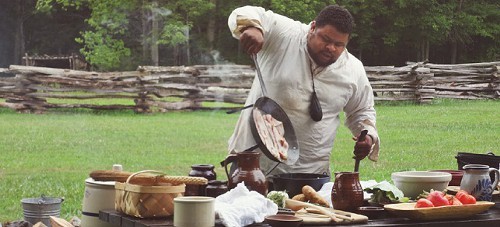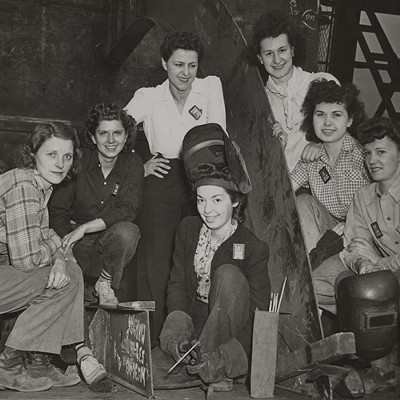Friday, July 26, 2013
Culinary Historian Explores Slavery through Food
The Heinz History Center's exhibit From Slavery to Freedom tells the story of brave African Americans who fought for freedom and escaped slavery through the Underground Railroad. This story isn’t new, but Sam Black, director of African-American programs at the Center, wanted to do something different.
“I wanted to look more into the African-American life experience,” he explains. He was curious how 19th-century African Americans lived, what they did and what they ate. So he contacted culinary historian and Maryland native Michael Twitty, who became an adviser to the History Center’s exhibit.
On Saturday, Twitty will visit the Meadowcroft Rockshelter, in Avella, to discuss the centuries of tradition, commonly cooked into one meal.
From behind the stove, he will narrate an often-overlooked thread of the slavery story, what everyday life was like for African Americans more than two centuries ago. Over the course of his two-hour demonstration, titled “Beyond the Big House Kitchen: A Culinary History of American Slavery,” Twitty will cook a meal of fried chicken, okra soup, kush and hoecakes, the latter a type of cornmeal pancake that enslaved Africans made using the blade of their hoe as a skillet.
Food can reveal a lot about the way people lived. Twitty’s research has traced African-American cooking methods and ingredients back to West Africa, the region from which most of this country’s enslaved people came. There, Black explains, men traditionally had the job of food preparation. However, on plantations, the slave owners wanted the men to do more intense physical labor in the fields. African Americans were forced to conform to the European model, and food preparation became a woman’s job.
Some plantations allowed slaves to have gardens near their cabins. They preserved their West African roots by cultivating traditional ingredients, like hot peppers, greens, okra and peanuts. Many continued to farm these heirloom crops after they escaped the plantations. Sometimes they had to substitute, for example, swapping sweet potatoes for traditional African yams, which were not readily available in the United States.
The demonstration starts at 11 a.m. and is free with regular admission, which costs $12 for adults, $11 for senior citizens, and $6 for students and children ages 6-17. Admission is free for children under 5.
Meadowcroft Rockshelter is located in Avella, in Washington County, about an hour west of Pittsburgh.
Tags: Heinz History Center , African American , Black history , From Slavery to Freedom , culinary history , food , Michael Twitty , Image














